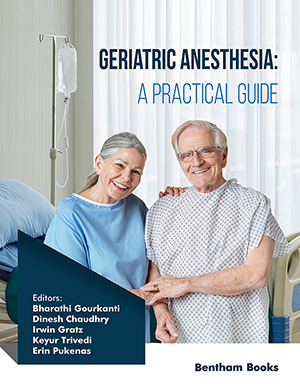Abstract
Objective: Improving health-related quality of life (HRQOL) in people living with HIV (PLWH) is one of the critical goals of HIV prevention and control in the following decades, and perceived social support (PSS) has always exhibited a positive influence on patients' HRQOL. This study aims to describe the gap in social support in improving HRQOL between symptomatic and asymptomatic PLWH.
Methods: By analysing secondary data from an online survey, a multicenter, descriptive and crosssectional study was conducted. The correlation trend and differences between PSS and HRQOL among asymptomatic and symptomatic PLWH were determined.
Results: Information from 493 PLWH with ART medication was finally analyzed: 34.89% asymptomatic PLWH and 65.11% symptomatic PLWH. There were significant differences observed between the two groups in terms of family income (χ2 = 9.782, P = 0.021), HIV-positive duration (χ2 = 19.541, P < 0.001), stage of disease (χ2 = 9.617, P = 0.008), and comorbidities (χ2 = 26.119, P < 0.001). The mean score of HRQOL of PLWH for the whole domain of the questionnaire was 86.56 (SD = 15.95). In six domains of QOL and PSS, the asymptomatic group had better conditions than the symptomatic group. There was a linear association between PSS and HRQOL, not only in the symptomatic group but also asymptomatic population, after adjusting for potential confounding factors. When the level of PSS was between 60 and 80, the HRQOL of the symptomatic group was similar to that of the asymptomatic group. While the score of PSS exceeded 80, the HRQOL of the symptomatic group was less sensitive to the changes in PSS. The social and environmental status of HRQOL in PLWH was most strongly correlated with their PSS.
Conclusion: The value of PSS on the HRQOL in PLWH is confirmed, especially for asymptomatic subjects. Healthcare providers need a complete understanding of the gap in social support between the asymptomatic and symptomatic populations. The comprehensive strategies, including symptom management, active treatment, and social support, should be more efficient for improving the overall health of symptomatic PLWH.
Keywords: HIV/AIDS, health-related quality of life, perceived social support, symptom, PLWH, asymptomatic population.
[http://dx.doi.org/10.4103/jrms.JRMS_630_18] [PMID: 30815018]
[http://dx.doi.org/10.1016/S2352-3018(17)30066-8] [PMID: 28501495]
[http://dx.doi.org/10.1080/09540121.2021.1891193] [PMID: 33663284]
[http://dx.doi.org/10.1016/j.jpainsymman.2019.03.018] [PMID: 30951828]
[http://dx.doi.org/10.1097/JNC.0000000000000166] [PMID: 32084038]
[http://dx.doi.org/10.1080/09540121.2020.1748868] [PMID: 32266830]
[http://dx.doi.org/10.1007/s10865-020-00141-6] [PMID: 32072364]
[http://dx.doi.org/10.1016/j.socscimed.2021.113711] [PMID: 33550066]
[http://dx.doi.org/10.1111/jgs.12410] [PMID: 23927911]
[http://dx.doi.org/10.1080/13607863.2014.1003287] [PMID: 25633086]
[http://dx.doi.org/10.1177/0898264317724549] [PMID: 28831864]
[http://dx.doi.org/10.1001/jama.1995.03520250075037] [PMID: 7996652]
[http://dx.doi.org/10.1111/j.1547-5069.2005.00023.x] [PMID: 15960055]
[http://dx.doi.org/10.1007/s11136-021-02771-y] [PMID: 33582967]
[http://dx.doi.org/10.1016/S0277-9536(98)00009-4] [PMID: 9672396]
[http://dx.doi.org/10.1046/j.1365-2648.1999.00877.x] [PMID: 10064297]
[PMID: 34543113]
[http://dx.doi.org/10.1016/j.ypmed.2017.12.018] [PMID: 29277410]
[http://dx.doi.org/10.1080/09540121.2015.1114995] [PMID: 26850839]
[http://dx.doi.org/10.1371/journal.pone.0021839] [PMID: 21738797]
[http://dx.doi.org/10.1007/978-3-030-78771-4_23] [PMID: 34972907]
[http://dx.doi.org/10.1590/s1518-8787.2017051006266] [PMID: 28746573]
[http://dx.doi.org/10.1177/13591053211072430] [PMID: 35086380]
[http://dx.doi.org/10.1080/17483107.2021.1881173] [PMID: 33555947]
[http://dx.doi.org/10.1186/s12955-016-0517-4] [PMID: 27495166]
[http://dx.doi.org/10.1080/09540129650125966] [PMID: 8664366]
[http://dx.doi.org/10.1089/apc.2007.0022] [PMID: 17919093]
[http://dx.doi.org/10.1186/s12889-019-6985-9] [PMID: 31138239]
[http://dx.doi.org/10.1080/09540121.2018.1510094] [PMID: 30099885]
[http://dx.doi.org/10.1016/j.jana.2012.04.006] [PMID: 22770801]
[http://dx.doi.org/10.1097/00006842-197609000-00003] [PMID: 981490]
[http://dx.doi.org/10.1176/ajp.149.11.1514] [PMID: 1415818]
[http://dx.doi.org/10.1016/j.apnr.2014.09.011] [PMID: 25315140]
[http://dx.doi.org/10.1080/09540121.2018.1497136] [PMID: 29996657]
[http://dx.doi.org/10.1590/1983-1447.2020.20190290] [PMID: 32667420]
[http://dx.doi.org/10.1080/09540121.2018.1563281] [PMID: 30714386]
[http://dx.doi.org/10.1080/09540121.2016.1224298] [PMID: 27590180]
[http://dx.doi.org/10.1186/s12955-016-0556-x] [PMID: 27809839]
[http://dx.doi.org/10.1080/09540120903482994] [PMID: 20635243]
[http://dx.doi.org/10.1016/0277-9536(91)90150-B] [PMID: 2035047]
[http://dx.doi.org/10.1002/nur.20008] [PMID: 15042639]
[http://dx.doi.org/10.1016/j.apnr.2015.03.006] [PMID: 26608434]
[PMID: 12101852]
[PMID: 19266741]
[http://dx.doi.org/10.1016/S0212-6567(02)78993-2] [PMID: 12139849]
[http://dx.doi.org/10.1177/1010539516650721] [PMID: 27217427]
[http://dx.doi.org/10.1016/j.tips.2021.10.004] [PMID: 34742581]
[http://dx.doi.org/10.1001/jama.2020.17025] [PMID: 33052386]
[PMID: 26060686]
[http://dx.doi.org/10.1080/09540121.2013.873764] [PMID: 24423628]
[http://dx.doi.org/10.1080/09540129308258587] [PMID: 8461365]
[http://dx.doi.org/10.1186/1477-7525-11-56] [PMID: 23566318]
[http://dx.doi.org/10.7448/IAS.17.4.19616] [PMID: 25394120]
[http://dx.doi.org/10.1111/j.1547-5069.1994.tb00333.x] [PMID: 7829111]
[http://dx.doi.org/10.1046/j.1365-2648.2001.01697.x] [PMID: 11298204]
[http://dx.doi.org/10.1097/00012272-200510000-00005] [PMID: 16292019]






























